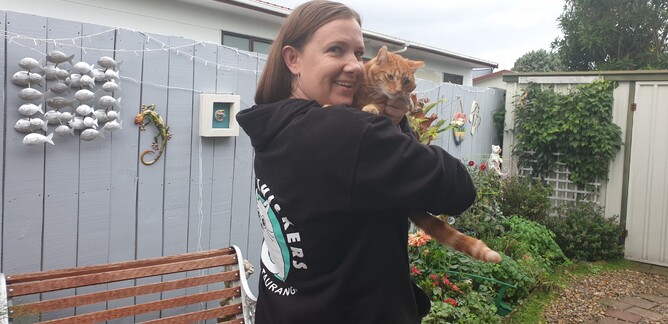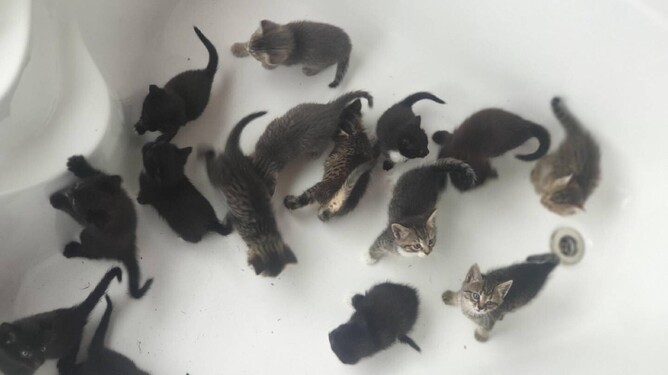They might be the most popular companion animal in New Zealand, but cats are not so popular in the wild.
Stray and feral cats are a widespread problem across the country, with numbers estimated to be in the millions. At this scale, they not only face lives of hunger and poor health, but also wreak havoc on our native birdlife, skink, and gecko population.
And it's a problem that can be hard to contain, with a single unspayed female cat and her offspring able to produce more than 400,000 cats in their lifetime.
One local charity is working to change that by rescuing, rehabilitating and rehoming true strays and wild kittens across Tauranga.
Wild Whiskers was established in 2018 by Tauranga Vet Nurse Sharna Asplin. While working in-clinic, she noticed that strays and wild cats were falling through the cracks.
Sharna says the volunteer-run group has two focuses.
"Over the summer months it is kitten season, so we are all about taking in wild kittens eight weeks and younger as this is the crucial socialisation period. We have on average 20 fosterers across Tauranga who will take the kittens in, and once we are sure that they will become great pets, we desex, vaccinate, microchip, flea and worm and put them up for adoption.
"During the winter months we shift our focus to TNR – Trap, Neuter, Return. When someone contacts us about a stray, first we make sure they aren't owned by posting on social media, scanning for a microchip, putting on a 'found cat collar' if possible and contacting local vet clinics. We then neuter the cat before releasing it back.
"We will only do TNR if someone is willing to take on guardianship, there is a regular food source, and there is no danger to native wildlife. Having that regular food source ensures the cats are less likely to hunt to sustain their hunger.
"But of course, there are circumstances where the cats can't go back to where they've come from, or if they are sick and injured, then unfortunately, euthanasia is usually the best option for them."
Wild Whiskers has rescued, rehabilitated and rehomed over 100 kittens this past kitten season from October to April. They have also trapped, neutered and returned an additional 52 adult cats.
Sharna says their work is community-focused, and people can support their work by taking a few simple steps.
"Quite often I'll get a message saying there's a cat hanging around my house and I want it gone, but there is a process we have to go through. As a charity and as volunteers, we work with the community. They are community cats, and they are a community issue, so we like to work with our community to find the best solution for them.
"If you find a stray, the best thing you can do is take its photos, write a description, and pop it online. You can also ask neighbours and do a mailbox flyer drop. It gets the ball rolling and helps us in establishing if the cat is actually owned.
"Just because a cat is skinny, has a dirty coat or takes off as soon as it sees you, don't automatically assume that it is stray or feral. It may be an owned cat who is old, has a health issue or is not fond of strangers.
"And If you see a cat who has a notch taken off its ear, most likely the left ear, please leave it be, as it is a wildie who has already been desexed."
Wild Whiskers Tauranga received TECT funding for the first time this year to support their operating costs. Sharna says the $4,000 grant has gone a long way to helping more cats and kittens in our region.
"It's made a huge difference for us, especially after last year with Covid and the lockdown. There was a lot of fundraising that we weren't able to do, so it made a big impact having those funds, especially for vet fees which can be costly.
"It's also a great acknowledgement of the work we are doing to be supported by such a major funder like TECT.
"We are also so appreciative of all those who donate, and the support we get from community groups like Good Neighbour and businesses like Pak n Save Tauranga and vet clinics who donate stock throughout the year. It's all helping us to help the environment and stop the cycle of unwanted litters and the health issues that can come along with it."





